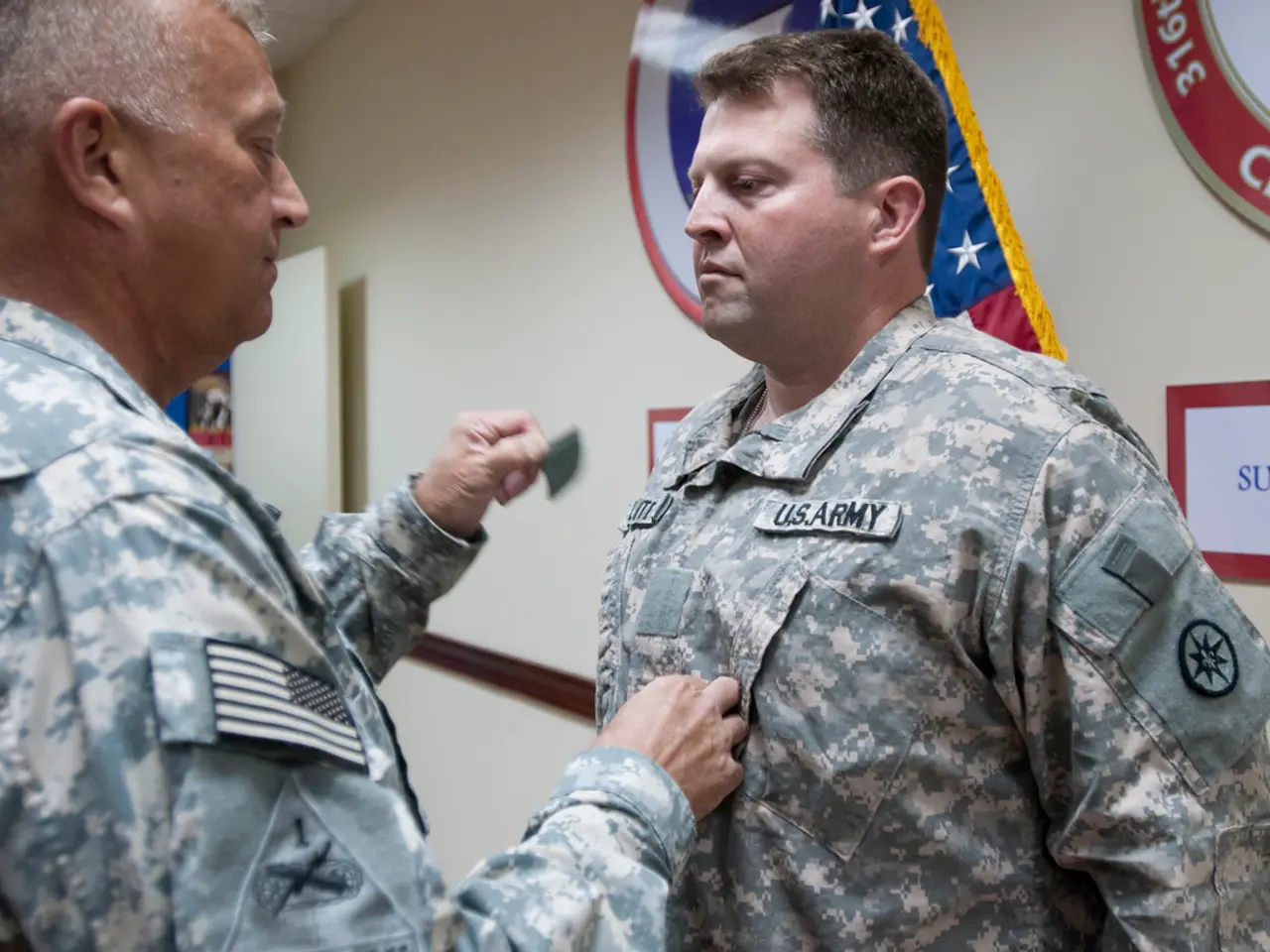Military Service with Asthma: Essential Information to Consider
The U.S. military, with its stringent medical standards, has revised its policy on asthma enlistment. Previously, anyone with a history of asthma was disqualified, regardless of age. However, in 2014, the Department of Defense made a significant shift, only disqualifying those with asthma beyond the age of 13 years [1].
The granting of a waiver depends on several factors, including the period since a person last had symptoms or received treatment, the severity of their asthma, and their general outlook [1]. Each specific branch may have additional or different requirements [1].
For instance, the Navy can disqualify a candidate for aviation training and duties if they have any history of asthma, even a mild case. However, they can receive a waiver if they fulfill certain requirements [1]. On the other hand, the Air Force announced in 2017 that it would process candidates with a questionable history of asthma for a waiver if they successfully pass the methacholine challenge [2].
The Marines Corps uphold the same standards as above for health waiver applications [2]. The U.S. military will not discharge personnel who develop asthma while on duty if their condition is manageable with treatment and does not hinder their duty performance [3].
The process to obtain a medical waiver typically involves an initial medical screening, medical evaluation, waiver request submission, waiver review and approval, and a final decision and communication [1]. Due to the updated tightening of standards, especially post-April 2025 Pentagon directives, waivers for asthma are now more scrutinized [1][2][4].
Prospective recruits are advised to work closely with their recruiters and provide comprehensive medical documentation to improve waiver chances [4]. It's important to note that the Military Health System (MHS) ensures that all active duty and reserve personnel are healthy and ready to meet their responsibilities [5].
In summary, while a history of asthma used to be a common disqualifier, recent policies allow potential enlistment pending a thorough medical waiver process that includes medical evaluations and approval by military medical authorities, with specific procedures varying slightly by branch but governed under overarching Department of Defense guidelines [1][2][3][4].
References:
- Defense.gov
- Air Force Times
- Military.com
- Army Times
- Military Health System
- Some chronic diseases, such as HIV or diabetes, can pose challenges for enlistment in the military, but each case is evaluated on an individual basis.
- Macular degeneration, a common dry eye disorder affecting vision, may raise questions about a person's eligibility for certain aviation roles in the military.
- Dermatitis, an inflammatory skin condition, may not automatically disqualify someone from enlistment, but it might require a thorough evaluation before granting a waiver.
- Ulcerative colitis, a type of inflammatory bowel disease like Crohn's disease, could potentially impact enlistment, especially in roles requiring physical stamina or specific medical standards.
- In the case of atopic diseases, such as eczema or allergies, the military might scrutinize the individual's case more carefully due to their chronic nature.
- Predictive science and medical advancements are continuously playing a role in understanding and accommodating a broader range of medical-conditions and chronic diseases, making the enlistment process more inclusive over time.
- Veterans with previously managed chronic diseases, such as type 2 diabetes or controlled HIV, can find resources and support through health and wellness programs designed for their unique needs.
- AQ, or autoimmune disorders, can present varying challenges for military members, with conditions like lupus and rheumatoid arthritis needing careful consideration during the enlistment and waiver process.
- The military's approach to health and wellness is not limited to physical fitness; mental health conditions, such as post-traumatic stress disorder (PTSD) or depression, are also being addressed with increasing understanding and sensitivity.
- In summary, while the military maintains strict medical standards, it continues to revise and adapt its policies to better accommodate a diverse range of health and wellness needs, ensuring a more inclusive approach to enlistment and supporting the overall health and readiness of its personnel.




